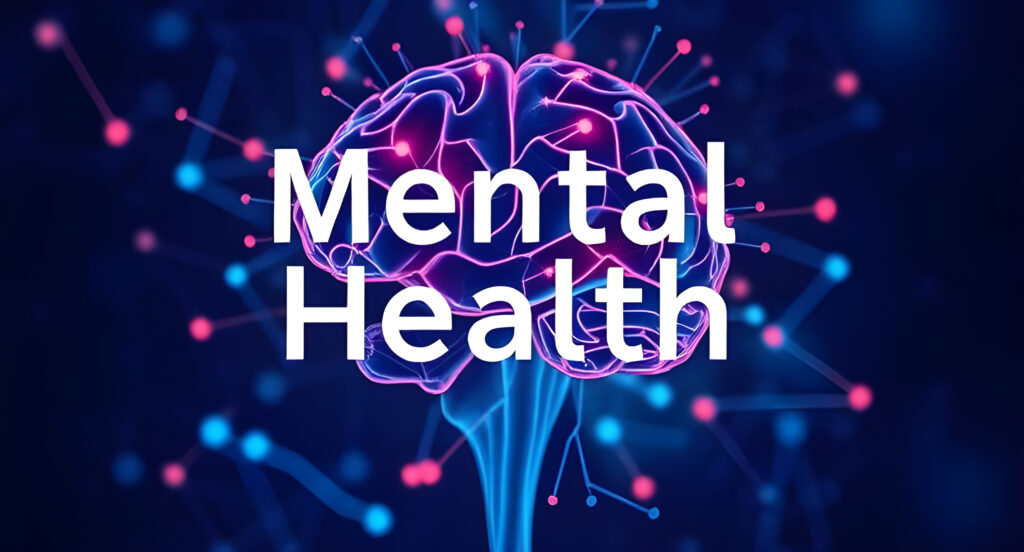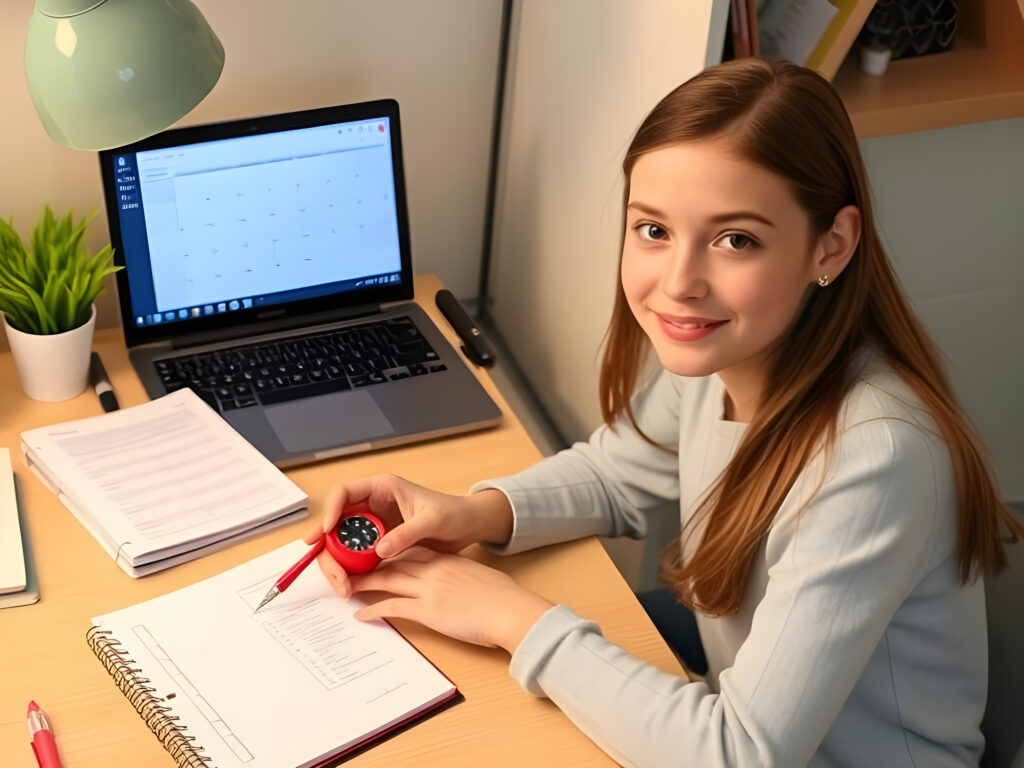Mental Health Tips for Students: Staying Focused and Stress-Free

Introduction
Student life is full of excitement, learning, and personal growth, but it can also be overwhelming. The pressure of exams, deadlines, extracurricular activities, and social responsibilities can take a toll on mental health. Balancing academics and well-being is crucial for long-term success.
If you often feel stressed, distracted, or emotionally drained, you’re not alone. Many students struggle with maintaining their mental health while trying to excel in their studies. The good news is that simple lifestyle adjustments can significantly improve focus, productivity, and overall happiness.
Here are some practical mental health tips to help students stay focused, stress-free, and emotionally strong.
Prioritize Quality Sleep
Sleep is one of the most important factors for maintaining mental clarity and emotional stability. Lack of sleep can lead to poor concentration, increased anxiety, and lower academic performance.
Tips for Better Sleep:
- Aim for 7–9 hours of sleep per night.
- Maintain a consistent sleep schedule, even on weekends.
- Avoid screens (phones, laptops, TVs) at least an hour before bed—blue light can disrupt sleep patterns.
- Create a relaxing bedtime routine, such as reading a book or practicing deep breathing exercises.
- Limit caffeine intake, especially in the evening.
Proper rest helps refresh your brain, improve memory, and boost overall well-being.
Master Time Management

One of the biggest sources of student stress is poor time management. When deadlines pile up, it’s easy to feel overwhelmed. Organizing your schedule effectively can help you stay on top of tasks without unnecessary stress.
Effective Time Management Strategies:
- Use a planner or digital calendar to track assignments, deadlines, and study sessions.
- Break large tasks into smaller, manageable steps to avoid last-minute cramming.
- Apply the Pomodoro Technique—work for 25 minutes, then take a 5-minute break to keep productivity high without exhaustion.
- Set priorities—focus on the most urgent and important tasks first.
- Avoid multitasking; instead, dedicate full attention to one task at a time for better results.
A well-structured schedule can make academic life smoother and help maintain peace of mind.
Practice Mindfulness and Deep Breathing
Mindfulness and breathing exercises are powerful tools to combat stress and improve focus. When your mind is constantly racing with worries, these techniques can help ground you in the present moment.
Ways to Practice Mindfulness:
- Meditation: Spend 5–10 minutes each day in a quiet place, focusing on your breath. Apps like Headspace and Calm can guide you.
- Journaling: Write down your thoughts, worries, or things you’re grateful for to clear your mind.
- Deep Breathing Exercises: Try the 4-7-8 technique—inhale for 4 seconds, hold for 7 seconds, exhale for 8 seconds. This helps lower stress instantly.
- Progressive Muscle Relaxation (PMR): Tense and then relax each muscle group in your body to release stress.
Mindfulness helps reduce anxiety, improve concentration, and promote emotional well-being.
Stay Physically Active
Exercise is a natural stress reliever that boosts mood and energy levels. Even if you have a busy schedule, incorporating some form of physical activity can make a big difference.
Ways to Stay Active as a Student:
- Take short walks between study sessions.
- Join a sports team or engage in activities like yoga, cycling, or dancing.
- Stretch regularly, especially if you spend long hours sitting.
- Use stairs instead of elevators whenever possible.
Exercise releases endorphins, also known as “feel-good” hormones, which help reduce stress and improve mental clarity.
Eat a Healthy and Balanced Diet
What you eat has a direct impact on your brain function and mental health. A well-balanced diet can improve memory, focus, and mood stability.
Brain-Boosting Foods:
- Omega-3 fatty acids (found in fish, walnuts, and flaxseeds) support brain function.
- Whole grains (brown rice, oatmeal, whole wheat bread) help maintain steady energy levels.
- Fruits and vegetables provide essential vitamins that keep your mind sharp.
- Dark chocolate (in moderation) can improve concentration and reduce stress.
- Hydration is key—drink enough water to stay alert and avoid fatigue.
Avoid excessive caffeine, processed foods, and sugary snacks, as they can cause energy crashes and affect concentration.
Stay Connected and Seek Support
Social support is crucial for emotional well-being. Surrounding yourself with positive and supportive people can help you manage stress better.
Ways to Stay Connected:
- Maintain regular communication with family and close friends, even if it’s just a quick text or call.
- Join student organizations, clubs, or study groups to meet like-minded peers.
- Don’t hesitate to seek guidance from mentors, teachers, or counselors when you feel overwhelmed.
If you’re struggling emotionally, talking about it can be incredibly healing. Never be afraid to ask for help.
Take Breaks and Engage in Hobbies
Studying for long hours without breaks can lead to burnout and reduced productivity. Taking short breaks refreshes your mind and improves learning retention.
How to Take Meaningful Breaks:
- Step outside for fresh air or a quick walk.
- Listen to music or a podcast that relaxes you.
- Engage in hobbies like painting, playing an instrument, or reading fiction.
- Practice stretching or light exercise to release tension.
Remember, taking breaks isn’t a waste of time—it’s essential for long-term success.
Set Realistic Goals and Avoid Perfectionism
Many students feel stressed because they set unrealistically high expectations for themselves. While ambition is good, perfectionism can lead to burnout.
Healthy Goal-Setting Tips:
- Break long-term goals into smaller, achievable steps.
- Celebrate small wins to stay motivated.
- Accept that mistakes are part of learning—progress is more important than perfection.
Striving for excellence is great, but remember to be kind to yourself.
Avoid Comparing Yourself to Others
In the age of social media, it’s easy to fall into the trap of comparison. However, everyone has a unique journey, and comparing yourself to others can negatively impact your mental health.
How to Overcome Comparison Anxiety:
- Focus on your own progress and personal growth.
- Limit time spent on social media if it makes you feel inadequate.
- Remind yourself that everyone faces challenges, even if they don’t show it.
Your path is your own—embrace it at your own pace.
Seek Professional Help When Needed
If stress, anxiety, or depression become overwhelming, don’t hesitate to seek professional help. Many schools offer counseling services, and online therapy options are also available.
There is no shame in seeking support—it’s a sign of strength. Your mental health matters, and help is always available.

Final Thoughts
Student life comes with challenges, but by prioritizing mental health, you can navigate them effectively. Simple habits like getting enough sleep, managing time well, eating right, staying active, and seeking support can make a huge difference in your well-being.
Remember, success isn’t just about grades—it’s about maintaining a healthy mind and body. Take care of yourself, set boundaries, and always prioritize your well-being.
You’ve got this! 🎓💪 Also Read Our Blog On How to Build a Strong LinkedIn Profile
